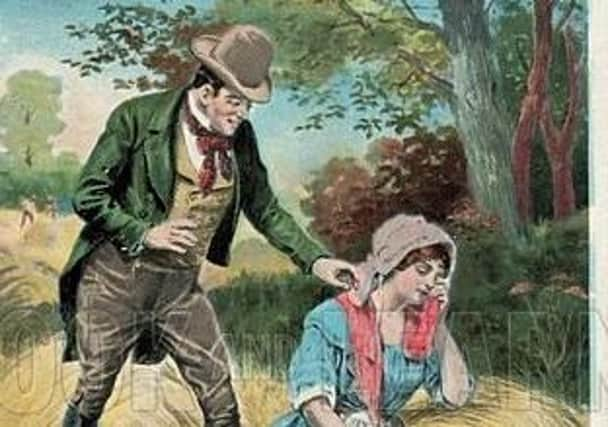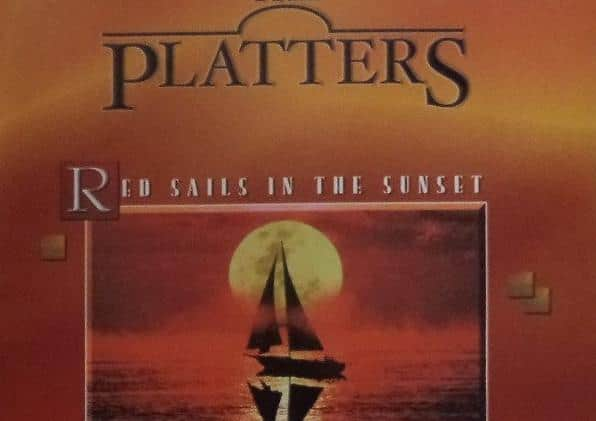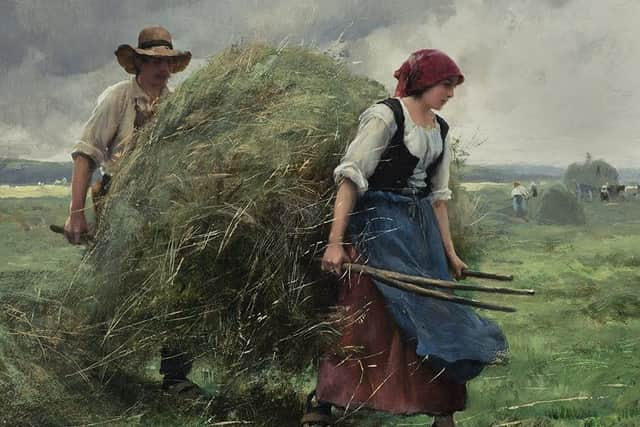Two historic songs, a famous sunset and sunny days on the farm


He was referring to the well-known ballad ‘Kitty of Coleraine’, warmly recounted here several weeks ago, all the way from Canada, by Ballycastle-born Mitchell Smyth.
“As beautiful Kitty one morning was tripping,
With a pitcher of milk from the fair of Coleraine”


“But who was Kitty?” asked Mitchell, a question he admitted has piqued his curiosity since he was a reporter in the Northern Constitution 60 years ago.
Advertisement
Hide AdAdvertisement
Hide AdNow retired after a long and successful career, reporting, editing and writing columns with the Toronto Star, he shared some intriguing information about Kitty on this page on Friday December 4, linking her to Bing Crosby, the Blarney Stone, and to a poetic, womanising, pistol-toting lawyer from County Clare.
A Coleraine newspaperman once told Mitchell that Kitty was a ‘real woman’ who lived at The Cutts, near the River Bann on the western outskirts of the town.
The song stormed planet-earth in 1949 when super-crooner Bing Crosby sang it in the movie, ‘Top o’ The Morning’.


Sam McIlwrath learnt it at the age of 10 in 1954 and “subsequent to that” Sam’s email continued “about 30 years later, in discussion with a Portstewart man, he informed me that the yacht in the song Red Sails in the Sunset was called. Kitty of Coleraine, an interesting little detail.”
Advertisement
Hide AdAdvertisement
Hide AdThat enormously popular and much-recorded song was of course written by Northern Ireland songwriter and lyricist Jimmy Kennedy, who also penned Blaze Away, South of the Border, We’re Going to Hang out the Washing on the Siegfried Line, The Isle of Capri, the Teddy Bears’ Picnic, and Harbour Lights.
I’ve heard it said before that Red Sails in the Sunset was inspired by the sails on a yacht called Kitty of Coleraine, which Kennedy often saw off Portstewart, but I haven’t yet come across an authoritative account!
If anyone has absolute proof, or near enough, please email the details to the mailbox address at the end of the page.
When previously seeking to confirm the source of Jimmy Kennedy’s red sails I was informed that Harland and Wolff launched a boat called Kitty of Coleraine on October 7. 1863.
Advertisement
Hide AdAdvertisement
Hide AdThe 24-ton vessel was a steam tug built for J P Corry and Company, for service with the Lower Bann Steamboat Company.
So it could well have steamed around Portstewart, though probably without sails!
I await with interest for more information – meanwhile, another reader’s email, this time resulting from an account here a few weeks ago about flax-growing.
You’ll all remember Ivy Lambert’s wonderful memories on this page of her childhood on a flax-growing farm near Douglas Bridge in County Tyrone.
Advertisement
Hide AdAdvertisement
Hide Ad“Our two flax fields were a sight to behold,” Ivy recounted “a sea of bright blue flowers shining in the sunlight.”
Several readers have already contacted Ivy to exchange their flax-growing reminiscences, including retired Cookstown-farmer Fred Faulkner who outlined the origins of linen here, with a host of historic flax and figures!
Fred got back to me last week, with an amazing story from days of yore when bureaucracy was evidently somewhat friendlier than it is today! It was a warm, sunny, sultry afternoon in late July 1947 and Fred’s father was harvesting a three acre field of Italian rye grass on the family farm at Annaghteige near Cookstown.
The mowing machine “was a two horse-drawn McCormack with four foot cut” and Fred was driving the horses “just old enough to do so” with his dad “on another seat beside me, shaving off the piles of cut grass.”
Advertisement
Hide AdAdvertisement
Hide AdFred’s mother and several farmhands were also hard at work in the blazing sunshine.
At around 3pm “a well-dressed man appeared at the field gate entrance.”
Fred’s dad was “coming round to cut another swathe” but stopped to ask what the man wanted.
“I can still see the look on my father’s face at his response,” Fred explained.
Advertisement
Hide AdAdvertisement
Hide Ad“I’m from the Ministry of Agriculture” the man said, “and I have come to enquire what wages you are paying your labour.”
“My father was generally a mild tempered man,” Fred stressed in his email.
“Wiping the sweat from his face,” Fred’s e-mail continued “my father said to the man ‘can you not see I’m up to my eyes here, trying to finish this field.
“Take a look at that sky, the weather’s going to break, and I have no time to talk to you!’”
The man left and the Faulkners got back to work.
Advertisement
Hide AdAdvertisement
Hide Ad“About an hour later the man appeared again,” Fred continued “this time wanting to know what time we stopped for a bite to eat, and he told us to ‘lose the horses out and take a break around about 6 o’clock.’”
While Fred’s family were having their 6 o’clock tea break “the man returned, accompanied by two other men and two women.”
“I still recall how adept those people were at tying rye grass and in a couple of hours the field was cut and stooked,” said Fred.
The visitors from the Ministry were awarded with home-baked bread, butter and tea!
Fred added a postscript to his e-mail “Could you see that scenario happen today?”